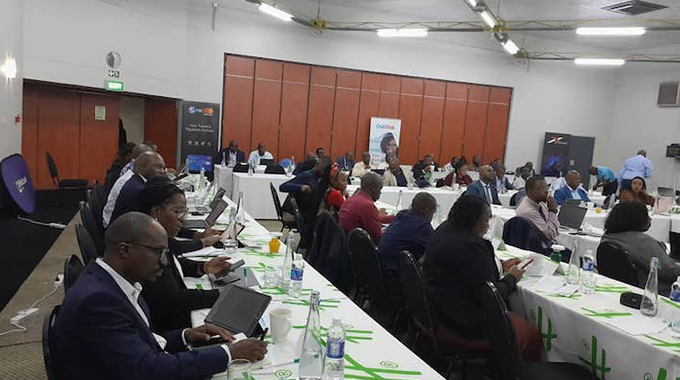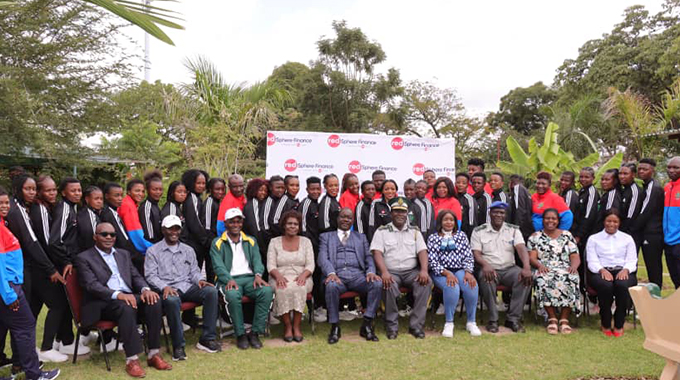‘Tugwi-Mukosi can help Zimbabwe achieve food sovereignty’

Robin Muchetu, [email protected]
MASVINGO Province’s Tugwi-Mukosi Dam has become a focal point, with calls for Parliamentarians to prioritise investigating its functionality.
Speaker of Parliament Advocate Jacob Mudenda, speaking at a capacity building and validation workshop for the portfolio committee on Lands, Agriculture, Water, Fisheries and Rural Development in Bulawayo on Saturday, said the dam has the capacity to help Zimbabwe achieve food sovereignty.
Advocate Mudenda stressed the need for full utilisation of the dam’s capacity, but only if it’s accompanied by integrated development that paves the way for food sovereignty.
“All creation rests on the land in Zimbabwe, as a committee you are obligated through your oversight role, legislation and representation to be passionate stewards of the productivity and production of this land. You have to ensure that on this land there is integrated development.

Irrigation
“We completed Togwi-Mukosi three years ago, it is full of water, million cubic metres of water but for three years no activity is going on. The committee must therefore say what is happening in all these dams that have been passionately built by our Government. From these water bodies, find out whether there is profitable agricultural activity through irrigation so that we have food sovereignty, beyond food security,” said Advocate Mudenda.
He explained that food sovereignty prioritises local food economies, ensuring sustainable food availability and centres on culturally appropriate foods and practices. Rather than catering to market demands and corporations, it places food producers, distributors, and consumers at the core of food systems and policies.
“It contributes to our status as a state that is secure and totally in charge of its assets as far as food is concerned, food in its wider sense. In the same vein, this same committee must find out if the dam (Tugwi Mukosi) is producing electricity, power generation. Have we planted fish as an industry on that dam and as a source of nutritious protein? Has this dam created tourist attractions where people can come and play with their boats and so on and when you talk about tourists, where are the hotels around the dam? This is the wider perspective of your portfolio when you exercise your oversight role,” said Advocate Mudenda.
The Speaker said that once the committee fully comprehends its roles, it will take on the responsibility of directing Government policy in terms of integrated development. As representatives of the people, their focus will be on fostering holistic progress.

Tugwi-Mukosi Dam
“As a committee you will be saying you have the law to ensure that there are activities around this dam. You have to answer to the protection of the environment around the dam and that those who undertake agricultural activities around this dam, there is no degradation of the land. Those that engage in the hospitality industry are not polluting the water, you see how vast your responsibility is,” he told the committee members.
Parliamentarians were also urged to closely monitor all water bodies in the country to assess the implementation of integrated development initiatives. The proactive approach aims to ensure sustainable growth and address critical issues.
Advocate Mudenda highlighted the threat posed by El-Nino and its impact on food security. He underlined the significance of the Tugwi Mukosi Dam, which, if functional, could irrigate an estimated 25 000 hectares of land. With proper irrigation, Zimbabwe could not only cultivate one crop but also achieve two crop cycles annually, thereby enhancing food sovereignty.
Moreover, the sub-sectors surrounding water bodies play a crucial role in creating employment opportunities. As Zimbabwe progresses toward food sovereignty, self-sufficiency becomes a priority, ensuring that no one suffers from hunger and upholding the fundamental right to life.
The Speaker also stressed the importance of capacity-building workshops for Parliamentary committees. The workshops expand committee members’ understanding of their colossal mandate. By embracing an integrated approach to development, Zimbabwe promotes democratic governance. The committee system, as the engine of Parliamentary processes, collaborates with smaller portfolio committees to dissect specific sectors of the economy and address critical issues. — @NyembeziMu











Comments